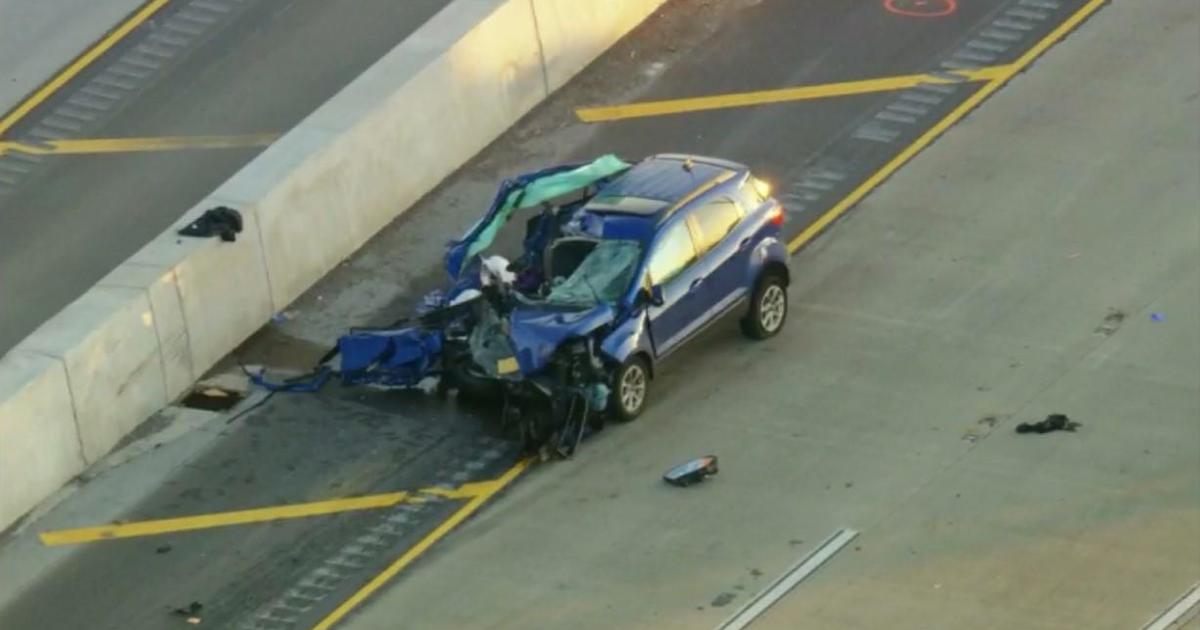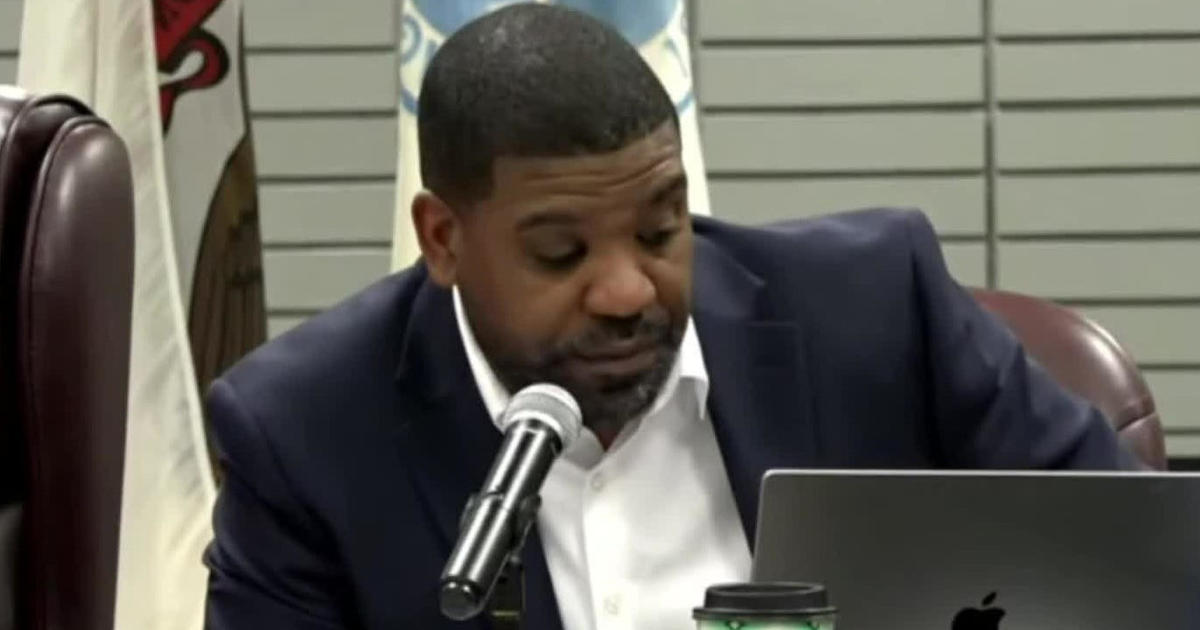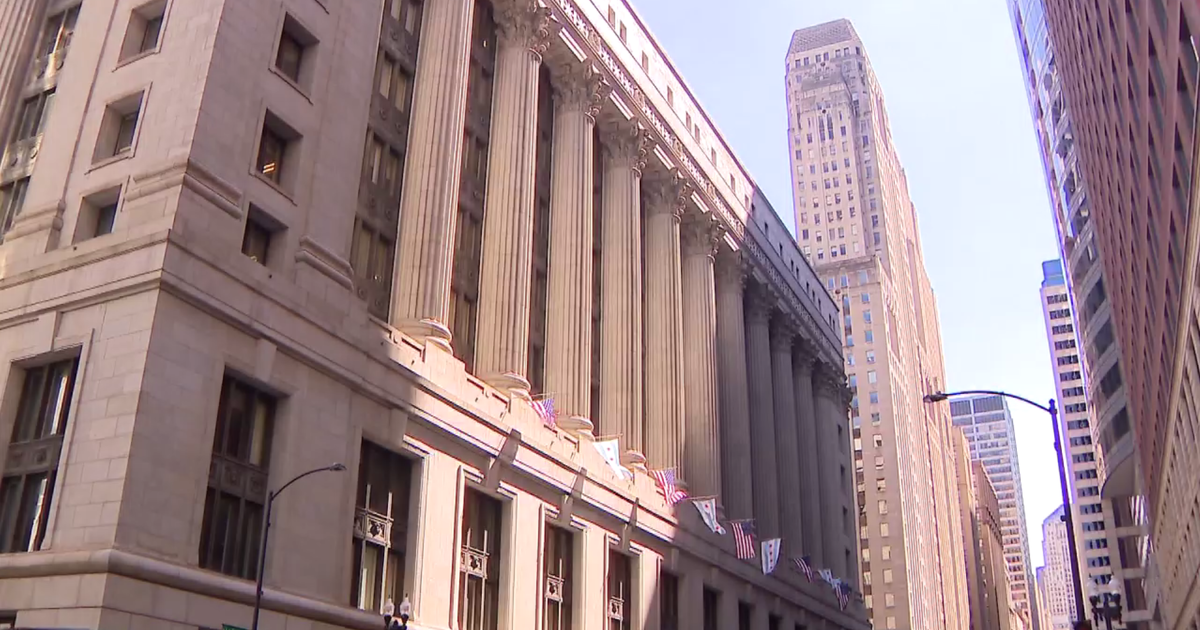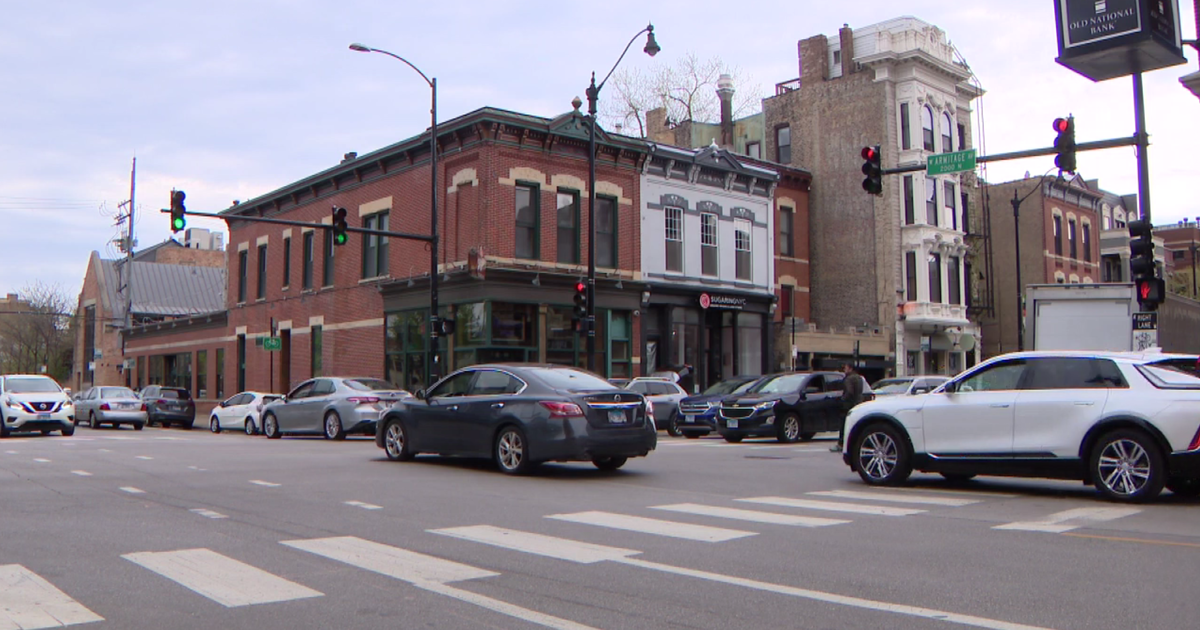Prosecutor's Closing Argument: Blagojevich 'Lied To You'
UPDATED 06/08/11 7:05 p.m.
CHICAGO (CBS) -- Federal prosecutors began their closing argument in Rod Blagojevich's corruption retrial on Wednesday, telling jurors that the former governor lied to them repeatedly during his seven days on the witness stand.
Assistant U.S. Atty. Carrie Hamilton urged jurors to look at all the evidence in the case and said that, when they did, they would come to two conclusions. First, that defense attorneys don't want them to focus on that evidence and, second, that "the defendant lied to you under oath in this courtroom."
Blagojevich, 54, is charged with 20 criminal counts, including allegations he tried to sell or trade an appointment to the U.S. Senate seat vacated by President Barack Obama, and that he tried to shake down a number of executives for campaign cash.
In a clear attempt to address one of the perceived weaknesses of the prosecution's case – that Blagojevich's alleged shakedowns never actually paid off – Hamilton asserted that an extortion attempt doesn't have to succeed for it to be a crime.
Hamilton compared Blagojevich's alleged shakedown attempts to a police officer demanding $50 from a driver to get out of a traffic ticket.
She said it would be "ludicrous" to let that cop get away with it if the driver didn't pay up.
"We don't say, 'Well, you should've paid him, then that would've been a crime'... That makes no sense," Hamilton said.
Occasionally pounding the lectern as she spoke to the jury, Hamiton spoke in an angry, emphatic tone as she painted Blagojevich as a corrupt liar interested only in getting personal benefits for himself in exchange for official actions.
Blagojevich appeared anxious and upset at many times during Hamilton's closing argument, rarely looking over at the jury.
Ridiculing part of Blagojevich's defense that his discussions about the Senate seat were just talk, Hamilton also said that, if a police officer was caught on tape demanding a bribe, he couldn't say, "I just floated the idea, I hadn't decided if I was going to take the 50 bucks if someone handed it to me."
"Not only is that ludicrous, it doesn't matter. The law focuses on the ask, not whether or not there was a receipt. … The law protects people from being squeezed," she added. "Make no mistake, the defendant Rod Blagojevich repeatedly tried to get personal benefits for himself in exchange for his official duties as governor of the state of Illinois."
She also emphasized to the jury that -- despite Blagojevich's repeated assertions that he never told anyonoe he was trying to exchange "one for the other" when discussing his ideas for the Senate seat -- the governor didn't have to be explicit in his requests about the Senate seat for them to be illegal.
"The governor never said you won't get your state funding if you don't give a campaign contribution," Hamilton said. "The law doesn't require anyone to be that direct. ... there are no magic words. ... The law focuses on what the defendant meant by the words."
Hamilton also reminded jurors of the oaths that Blagojevich took as governor to uphold the Constitution and fulfill his duties faithfully and legally.
"Time and time again, the defendant violated that oath," Hamilton said.
Methodically listing the allegations against Blagojevich one at a time, Hamilton spent most of the start of her closing argument focusing on the Senate seat allegations.
During his seven days on the witness stand, Blagojevich said his discussions about the Senate seat, captured on FBI wiretaps, were nothing more than idle talk and that his only serious plan for the seat was to broker a legitimate political deal to appoint Illinois Attorney General Lisa Madigan in exchange for her father, Illinois House Speaker Mike Madigan, passing the governor's legislative agenda.
But Hamilton said Blagojevich's own words betrayed that claim, as he was heard repeatedly discussing getting a Cabinet post, a high-paying job running a non-profit agency, or campaign cash in exchange for the Senate seat.
"Listen to his tone. Listen to the things he said and how he said them. He is serious," she said. "He isn't just taking some random flyer and doesn't know what he was doing. … The calls make his guilt crystal clear."
One of the strongest moments in Hamilton's closing came when she addressed the allegation that Blagojevich was trying to get $1.5 million in campaign cash from supporters of U.S. Rep. Jesse Jackson Jr. in exchange for appointing Jackson to the Senate seat.
Hamilton pointed out that Blagojevich has admitted he knew the offer of campaign cash from Raghu Nayak, a key Jackson fundraiser, was illegal, but Blagojevich tried to get it anyway.
"Does he turn these guys in?" Hamilton said. "Call up the authorities? Nope. He hangs on to that bribe offer."
She pointed to a phone call in which Blagojevich tells a group of advisers that Jackson's supporters have offered "tangible, concrete, tangible stuff" in exchange for a Jackson pick.
Blagojevich claimed on the stand that he was talking about getting Jackson to publicly support Blagojevich's legislative agenda, including a mortgage relief bill that had stalled in the state legislature.
But Hamilton pointed the jury to a series of phone calls on Dec. 4, 2008, when Blagojevich discussed possibly appointing Jackson with several advisers and his brother, Robert Blagojevich, who was in charge of the governor's campaign fund.
In one tape, Blagojevich was heard telling Robert to meet with Jackson fundraiser Raghu Nayak, who – by Blagojevich's own admission – had offered $1.5 million in campaign cash in exchange for Jackson getting the Senate seat.
Blagojevich claimed he only wanted his brother to tell Nayak that Jackson needed to support Blagojevich's legislative initiatives – including mortgage relief – if Jackson wanted the Senate seat.
"He came up with a whopper on this one," Hamilton said. "Raghu Nayak has nothing to do with the mortgage foreclosure bill. They never discussed it. He's the bribe guy, he's not the mortgage foreclosure guy. … It's about bribes, it's not about the mortgage foreclosure bill."
U.S. District Judge James Zagel ended court for the day in the middle of Hamilton's closing argument at the end of the day Wednesday. She will continue Thursday morning, followed by the defense's closing argument and then a "rebuttal" argument from lead prosecutor Reid Schar.
Jurors likely will begin deliberations Thursday afternoon or Friday morning.
LISTEN: Newsradio 780's Bob Roberts reports
Podcast
Lipinski Denies Asking Jackson To Give Blagojevich $25K
Before the defense rested on Wednesday, Blagojevich's lawyers called three brief witnesses to wrap up their case, including former Congressman Bill Lipinski.
Lipinski flatly denied a claim by another defense witness – Congressman Jesse Jackson Jr. – that Lipinski asked Jackson to contribute $25,000 to Blagojevich's campaign during his first run for governor in 2002.
Defense attorney Sheldon Sorosky asked Lipinski, "at any time did you ask Jesse Jackson for a $25,000 contribution" to assist Blagojevich's campaign?
Lipinski said, "No, sir."
On cross-examination, Lipinski conceded that he personally donated thousands of dollars to Blagojevich from his own campaign funds in 2002.
"I think it's fair to say that you were supportive of the defendant when he was running for governor in 2002? Assistant U.S. Atty. Chris Niewoehner asked.
"Very enthusiastically," Lipinski said.
Lipinski also conceded that he spoke to several people in 2002 to encourage them to support Blagojevich's campaign, but couldn't remember all of them. Niewoehner was apparently trying to show that Lipinski might have asked Jackson to contribute money to Blagojevich's campaign, but could not remember.
But Lipinksi emphasized that asking someone "To support the governor, that's one thing. To ask for a donation, at least in my mind, is another thing."
Jackson, who was called as Blagojevich's first defense witness, claimed on the stand that Lipinski asked him to contribute the money to Blagojevich's campaign, but Jackson said no.
According to Jackson, the next year, he tried to help his wife, Sandi Jackson, get a job running the Illinois Lottery under Blagojevich, but the governor picked someone else for the job.
A few months later, while Blagojevich was visiting Washington, D.C., Jackson claims Blagojevich told him "I'm sorry the thing with Sandi didn't work out," and later, as he was leaving the meeting, "In classic Elvis Presley fashion, he snapped both fingers and said 'You should have given me that $25,000.'"
Blagojevich has flatly denied Jackson's allegation.
FBI Agent: We Offered To Record Blago's Interview
The prosecution also took another shot at attacking Blagojevich's credibility on Wednesday by presenting a "rebuttal" case, calling FBI Special Agent Patrick Murphy to the stand to testify about the FBI's 2005 interview of Blagojevich.
Blagojevich was convicted of lying to the FBI in that interview when he told them that he did not track or want to know who gave money to his campaign fund, or how much they gave.
Prosecutors have already accused Blagojevich of misleading the public during a press conference immediately after his conviction for lying to the FBI at his first trial. In a post-trial press conference, Blagojevich accused federal officials of refusing to allow him to have a court reporter present for his 2005 interview with the FBI.
But what prosecutors say Blagoejvich left out was that the FBI offered to record the entire interview, but his attorneys refused.
Murphy backed up that contention on the witness stand on Wednesday.
"Before any questions started, was an offer made to tape the interview," Assistant U.S. Atty. Reid Schar asked. Murphy said "Yes."
Schar asked if Blagojevich was present when the request was made.
"He was sitting across from me at the conference table," Murphy said.
Murphy also said that he testified about the offer to record the FBI interview at Blagojevich's first trial last summer and that Blagojevich was in the courtroom when he did so.
The clear implication of Murphy's testimony was that Blagojevich was aware that the FBI had offered to record his interview, but still accused the FBI of trying to avoid making a record of the interview.
Hospital CEO Disputes Blagojevich's Testimony
Prosecutors also recalled Children's Memorial CEO Patrick Magoon in an effort to counter Blagojevich's version of a conversation they had on Oct. 17, 2008, regarding a rate increase that Magoon had requested for pediatric doctors who treat Medicaid patients.
Magoon testified earlier in the trial that Blagojevich informed him in that conversation that he had approved a $10 million rate increase, but asked Magoon not to bring any attention to the issue until after Jan. 1, 2009. Magoon said it was an unusual request, because Blagojevich usually liked getting publicity about such health care issues.
Magoon also has testified that it wasn't until later, when Blagojevich's brother approached him for a campaign contribution before the end of the year that he believed the governor wanted him to keep quiet because he wouldn't go ahead with the rate increase unless Magoon gave a contribution.
But Blagojevich testified that he told Magoon the reason he wanted Magoon to keep quiet about the rate increase was because he was making major budget cuts at the time. He said the rate increase would have been an exception and he feared if word got out about the rate increase, other groups would come to him for state funding.
But on Tuesday, Magoon said the governor made no mention of any concerns about his budget cuts.
"Did he say anything to the effect that he was breaking a policy because he was cutting billions from the budget?" Assistant U.S. Atty. Chris Niewoehner asked.
"No, he did not," Magoon said.
Niewoehner also asked if Blagojevich gave any explanation at all why no attention should be brought to the rate increase. Magoon said no.
Defense attorney Sheldon Sorosky asked Magoon if he remembered telling the FBI in a December 2008 interview that Blagojevich didn't want any attention brought to the matter because Blagojevich wanted to announce the rate increase first, but Magoon said he didn't remember saying that.
--Todd Feurer, CBS 2 Web Producer



